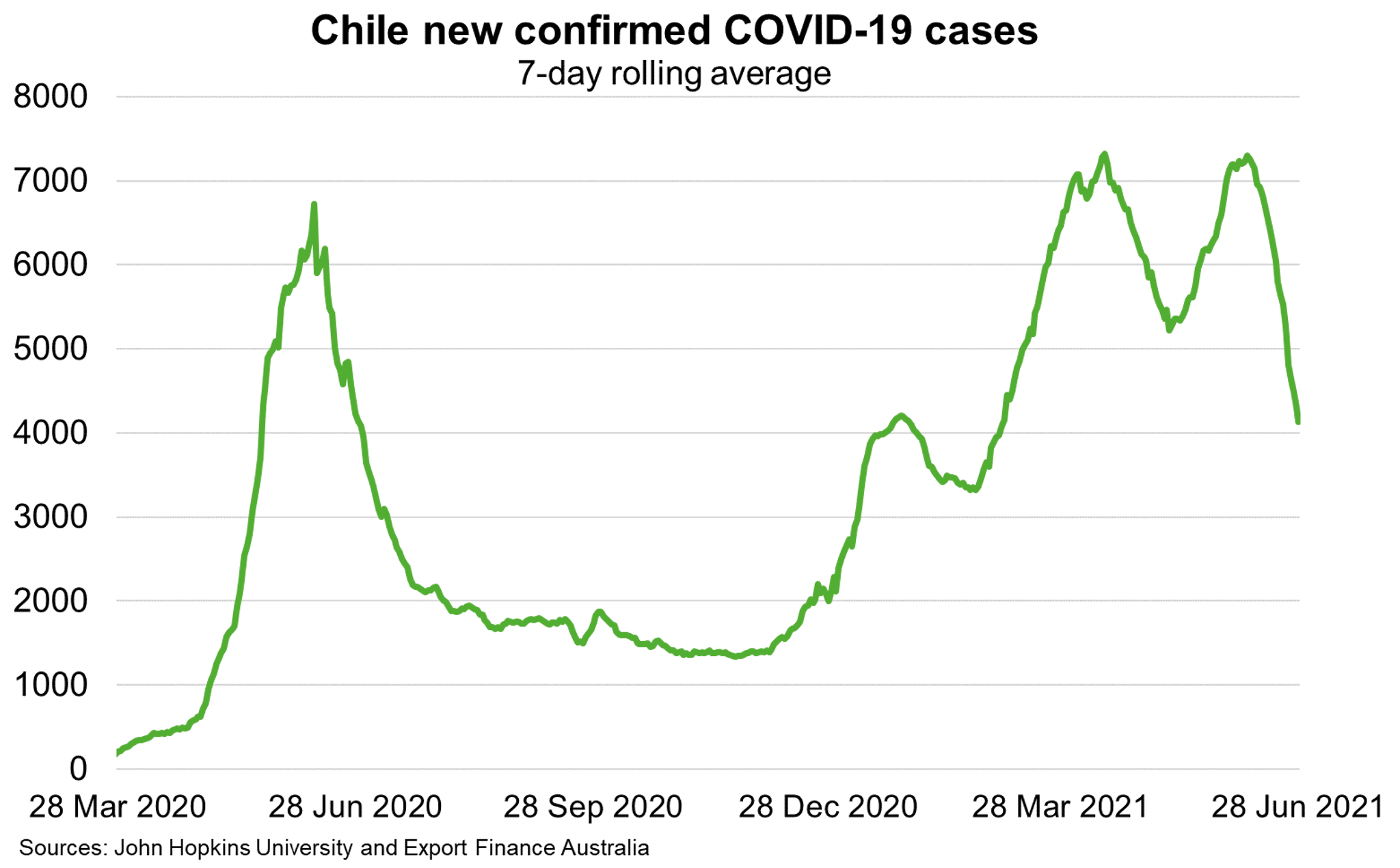Chile—COVID-19 cases surge despite high vaccination rate
Chile has one of the highest COVID-19 vaccination rates in the world. Over 80% of the population have received at least one vaccine dose, and 65% are fully inoculated. Despite this, Chile's reported weekly caseload surged this month to a near-record high (Chart). Intensive care beds in the capital reportedly reached 98% capacity, and health facilities were ‘on the verge of collapse’ according to the president of Chile's National Federation of Nursing Association.
Driving the latest wave is lockdown fatigue exacerbated by the spread of more infectious variants and the start of winter. It is believed that vaccinations have diluted health concerns, increasing the tendency of people to disregard restrictions amid increasing economic hardship. Further, while most infections have been in people that have not been fully inoculated, Chile’s vaccination program is dominated by the Sinovac vaccine, which observational studies have shown to be about 50% effective against symptomatic infection for the widely circulating P1 (Gamma) variant. Further, according to the WHO, there is no substantive data on the impact of the Sinovac vaccine on COVID-19 transmission. Public health and social measures remain critical to prevent infection until herd immunity is achieved.
The Central Bank raised its GDP growth forecast this month to 8.5-9.5% for 2021. Massive fiscal stimulus is expected to offset June lockdowns in large parts of the country, a still weak labour market and elevated policy uncertainty as the process of drafting a new constitution unfolds. However, a lean medium term outlook may complicate the business environment of the circa 200 Australian companies active in Chile (over a quarter listed on the ASX200). More broadly, Chile’s experience may provide caution to other governments considering how fast to reopen their economies as vaccination rollouts gather pace.

